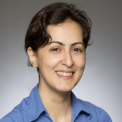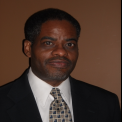Ordered plasmonic structures have been utilized for a wider range of applications. However, their properties suffer from defects, when large-scale applications are desired. There is growing evidence that the exceptional properties can be produced and tuned in disordered packings with built-in heterogeneities. For example, self-assembled, tightly packed spherical clusters of nanobeads (plasmonic metamolecules) have been shown to produce strong magnetic dipole resonances, with strong local hotspots that can be used for applications such as surface enhanced Raman scattering. I discuss how one can dynamic ally control these properties by using temperature-responsive hydrogel cores, and producing clusters with mixed particle sizes and materials. The robust synthesis of these structures affords large variations in their structure and properties. I will detail how variations in these parameters can affect the magnetic response of these dynamic metamolecules (DMMs). In large enough clusters, with large nanobeads, high-order magnetic multipole modes, i.e. magnetic quadrupole, octupole, and hexadecapole resonances, are observed in simulations as well as far-field extinction experiments [1]. In another example, anisotropic plasmonic nanoparticles and two-dimensional inorganic materials can be embedded in polymer matrices to produce disordered metamaterials. The properties of these materials can be studied using linear optical methods and readily modeled using metamaterial optical modeling. This combination of experiments and modeling provides a facile in-situ technique to study self-assembly, orientation ordering, and other phase changes such as degradation in polymer nanocomposites.
Events Calendar View
-
Departmental Colloquium
Sep 8, 2022
Emerging properties of disordered plasmonic metamaterials
-
CSP Lunch Seminar
Sep 13, 2022
Monte Carlo Simulations and Ground States of Semiflexible Polymers
-
Departmental Colloquium
Sep 15, 2022
A Dual-Stage Photonic Integrated Circuit Spectrometer
Spectrometers are key laboratory tools for many applications, from molecular identification and quantification to laser diagnostics. Addressing these applications in field-deployable scenarios requires significant size, weight, and power (SWaP) reduction from typical bulk-optic techniques. Photonic integrated circuits (PICs) are an attractive alternative to bulk-optic spectrometers because they are extremely low SWaP, are readily mass- produced, and can be ruggedized for field deployment. However, typical PIC-based spectrometers are unable to simultaneously deliver the resolution and bandwidth required for key applications such as Raman spectroscopy. Within the molecular “fingerprinting” region using a 780-nm pump wavelength, a Raman spectrometer must respond between 810–890 nm with sub-nanometer resolution. To address this application, I will present a photonic integrated circuit spectrometer that cascades an arrayed-waveguide grating with a series of coupled- resonator optical waveguide filters to achieve a spectral resolution of 0.35 nm over a bandwidth from 805–930 nm. Our team’s cascaded dual-stage spectrometer design permits simultaneous wide bandwidth and high resolution performance in a package that represents multiple orders of magnitude reduction in SWaP compared to free-space spectrometers. In this talk, I will discuss the simulation, design, and testing of our integrated circuit spectrometer as well as potential applications of our team’s technology.
-
CSP Lunch Seminar
Sep 20, 2022
Planet Formation in the Regime of Self-Gravitating Disk
-
Departmental Colloquium
Sep 22, 2022
Work Function Tuning in Ferric Chloride Intercalated Few-layer Epitaxial Graphene
Ferric chloride (FeCl3) is a p-type dopant for few-layer graphene. We studied the electronic density of states of FeCl3intercalated between single-layer (stage 1) and tri-layer (stage 3) graphene with applied electric bias. The work function of these layers as a function of the electric bias was analyzed using ultraviolet photoemission spectroscopy. The results showed that the work function of graphene could be tuned in FeCl3 intercalated few-layer graphene by up to 2.5 eV by the action of the resulting electric field. Further, we compared the density of states obtained by ultraviolet photoemission spectroscopy with that calculated using density functional theory. The inherently high 6.2 eV work function of the intercalated graphene due to charge transfer from FeCl3to graphene appears to be compensated with increasing negative bias. The wide range of control over the work function of graphene demonstrated here suggests that these systems are excellent for electronic and optoelectronic applications.
-
CSP Lunch Seminar
Sep 27, 2022
Langevin Dynamics/Monte Carlo Simulations of Moire Bilayers
Page 118 of 121, showing 6 records out of 723 total, starting on record 703, ending on 708




